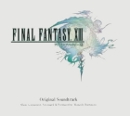
|
|
Dangun Feveron :: Review by Chris
 |
Album Title: | Dangun Feveron |
| Record Label: | Scitron Digital Contents | |
| Catalog No.: | SGCD-0004 | |
| Release Date: | December 4, 1998 | |
| Purchase: | Buy at eBay |
Overview
DISCO TIME! Dangun Feveron is another of Cave's 'bullet hell' shooters that is near-impossible to beat. While I haven't played it, as with Cave's other efforts, I've checked out clips from the game and been impressed by the visual and musical colour offered to relieve the agony. Its soundtrack is noted among most game reviewers and game music fanatics as one of the few disco soundtracks out there. T's music members Ryuichi Yabuki and Nanpei Misawa offer the musical fruit. Cave provide another complete but out-of-print soundtrack release carefully split into sections and fleshed out by an arranged track, two unreleased tracks, and voice and sound effects collections. Let's look at this ingenious and ever so catchy soundtrack in a bit more detail...
Body
The game's original score starts off with two electric guitar-led rock compositions, the brief but dazzling "Beat Attack" for the title screen and the rhythmically compelling "Battle Fighter" for the player select screen. They're well done reminiscent of Cave's early Donpachi series soundtracks, but delay the exposure of Dangun Feveron's infectious beats. It's the first stage theme, "Dancing Bomber", where the fun begins. This piece gets the rhythms, melodies, instrumentation, and articulation just right for a disco parody. The syncopated backing sets the scene in quirky fashion before a semi-improvised melody takes the lead with wonderful dramatic timing. The sleazy descending keyboard chords from 0:34 just steals the show though. This piece also gets an arranged version that opens the disc. It's not changed much melodically or rhythmically fortunately, but has been massively improved synth-wise (although the synth is certainly decent in the original) giving significantly more punch to the whole theme. The highlight of the arrangement is the brief but memorable solo section starting at the 1:40, initially with a intricate keyboard, before an electric guitar extravagantly takes over.
"Hello Mr. Cyborg" for Stage 2 is extremely similar to the music of the Bee Gees instrumentally and rhythmically, but ends up being a fun tribute rather than a copyright infringement. Instead of high-pitched vocals, expect some funky saxophone work instead that sounds better than a significant proportion of today's synth thanks to some expert sound programming. Stage 3's "Barofever" gets the rhythm guitar chicken-scratching while Tijuana-influenced brass band and a few cheeky sound effects fill the piece with character. The actual primary melody from an overdriven guitar is quite oppressive, but the contrasting 'B' section offers a slick new melody that makes me feel elated every time I hear it. Stage 4's "Soul Supermarket" tinkers around with electric keyboards against some jubilant beats. While the melody doesn't move much, its dancing between suspended notes and their resolutions works perfectly with the chord progressions and rhythms to create a playful atmosphere. "Disco 999" for the final stage has the flavour of a Latin dance featuring runs on a Phrygian scale, hints of rumba rhythms, and an array of forces syncopating the melodic line. This is probably the most addictive of them all.
The second half of the soundtrack features the boss themes and a fair few extras. The standard boss theme, "One Step to Ambition", is a decent guitar-led effort punctuated by orch hits; the disco has gone, but this theme is intended as an intensifier rather than as entertainment. The last boss theme makes a big impression with its grungy bass guitar line and wild synth glissandi but is extremely repetitious and the most disappointing theme on the soundtrack. The remaining items are mostly frenetic electric guitar themes for the stage clear, ending, name entry, and time attack screens, all of which are catchy and have rhythm, but suffer from brevity or repetition. To compensate for these disappointments, Cave provide two unreleased tracks intended as other stage themes; they have just as much individuality and refinement as the other stage themes and would have undoubtedly been included had the game made more stages (instead of just five insanely challenging ones). The voice collection is a surprising highlight given the main announcer, an extremely cheesy American guy, is simply hilarious to listen to. The sound effects collection that follows is an impressive emulated mixture of explosions, shots, and technological noises that provides a nice addition for the sake of completeness.
Summary
Dangun Feveron is an instantly endearing soundtrack. The disco-based stage themes, arranged track, and unreleased tracks are the major highlights; they're simply irresistable thanks to their infectious beats and catchy melodies. The battle and secondary themes are mostly standard guitar-based shmup fare and greatly reduce the quality of an already brief soundtrack. Half of the soundtrack is composed to fulfil an in-game purpose, the other half is intended for sheer entertainment while dazzling in the game. Both halves achieve their functions well, but it's obvious which one you'll want to revisit on a stand-alone basis... many many times. When there is such immense replay factor of certain themes, the limitations of the score seem unimportant. Its lack of availability is big problem for those desperate for a hard copy, though. I'd only suggest purchasing it if you also have the money to pay for rehab when you become utterly hooked on those stage themes...

